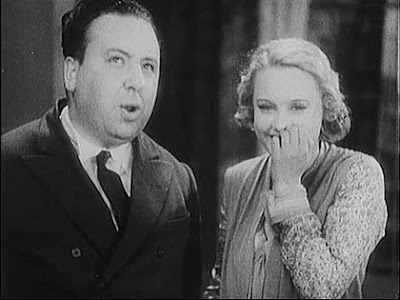The Hitchcock 9
Castro Theatre
June 14-16, 2013
SIFF Cinema Uptown
July 26-28, 2013
June 14-16, 2013
SIFF Cinema Uptown
July 26-28, 2013
San Franciscans will have a rare opportunity to see the British Film Institute's loving restoration of Alfred Hitchcock's earliest
surviving films. The San Francisco Silent Film Festival will present The Hitchcock 9 June 14 through 16 at
the historic Castro Theatre. The series illustrates the development of the
master of suspense’s directorial style from his first film, The Pleasure Garden (1925), to the one
he considered "the first true Hitchcock picture,"The Lodger (1926). While all these films
have been on DVD or VHS previously (often transferred from public domain prints
and with less than stellar soundtracks), this event provides a chance to see the
films restored to their original splendor, in a single screen cinema, and accompanied
by specially commissioned scores performed by accomplished silent film accompanist.
 |
| Director Alfred Hitchcock and star Anny Ondra have a bit of fun on the set of Blackmail. |
The Mont Alto Motion Picture Orchestra, a quintet dedicated
to authentic silent picture accompaniment, will play for the opening night film,
the silent version of the suspenseful psychological thriller Blackmail (1929). Originally produced as
a silent film, British International pictures gave Hitchcock the go ahead to
film a few sound sequences for Blackmail
(a common practice during the film industry’s transition to sound). Hitchcock
chose instead to create a second almost entirely sound version. Both were
released, accommodating cinemas that had installed sound and those who hadn’t, resulting
in a commercial success. Mont Alto will also accompany the boxing melodrama The Ring (1927) on Saturday and the closing
night screening of The Lodger on Sunday.
 |
| As usual, the course of true love does not run smooth in The Farmer's Wife (1928) |
Silent film pianist and composer Judy Rosenberg will perform her own scores for two films: The bubbly romantic comedy Champagne (1928) and the film adaptation of Noel Coward’s dramatic stage hit Easy Virtue (1927). The films play Saturday and Sunday afternoon respectively. The indefatigable composer, musician and BFI house accompanist Stephen Horne will play for the remaining four films, three of which he composed the scores for: Downhill (1927) based on the play co-written by the film’s star, Ivor Novello; the utterly charming romantic comedy The Farmer's Wife (1928); and the dark romantic triangle The Manxman (1929). Harpist Diana Rowan will join Horne for Manxman. Horne will also accompany the backstage tale of two chorus girls (one bad, one good), The Pleasure Garden (1926).
 |
| A bad girl or a good one? The Pleasure Garden (1926) |
Full program and ticket information for the SFSFF
presentation of The Hitchcock 9 is
available on the SFSFF's website. The series will also play in Seattle at the SIFF Cinema Uptown July 26-28. In addition, the series is set to screen in Brooklyn, Los Angeles Washington, D.C., Berkeley, Chicago, Houston, and Boston. Each venue will feature differing line-ups of accompanists. The touring festival is a joint venture of the BFI, Park Circus/ITV
Studios, and Rialto Pictures/Studiocanal.




